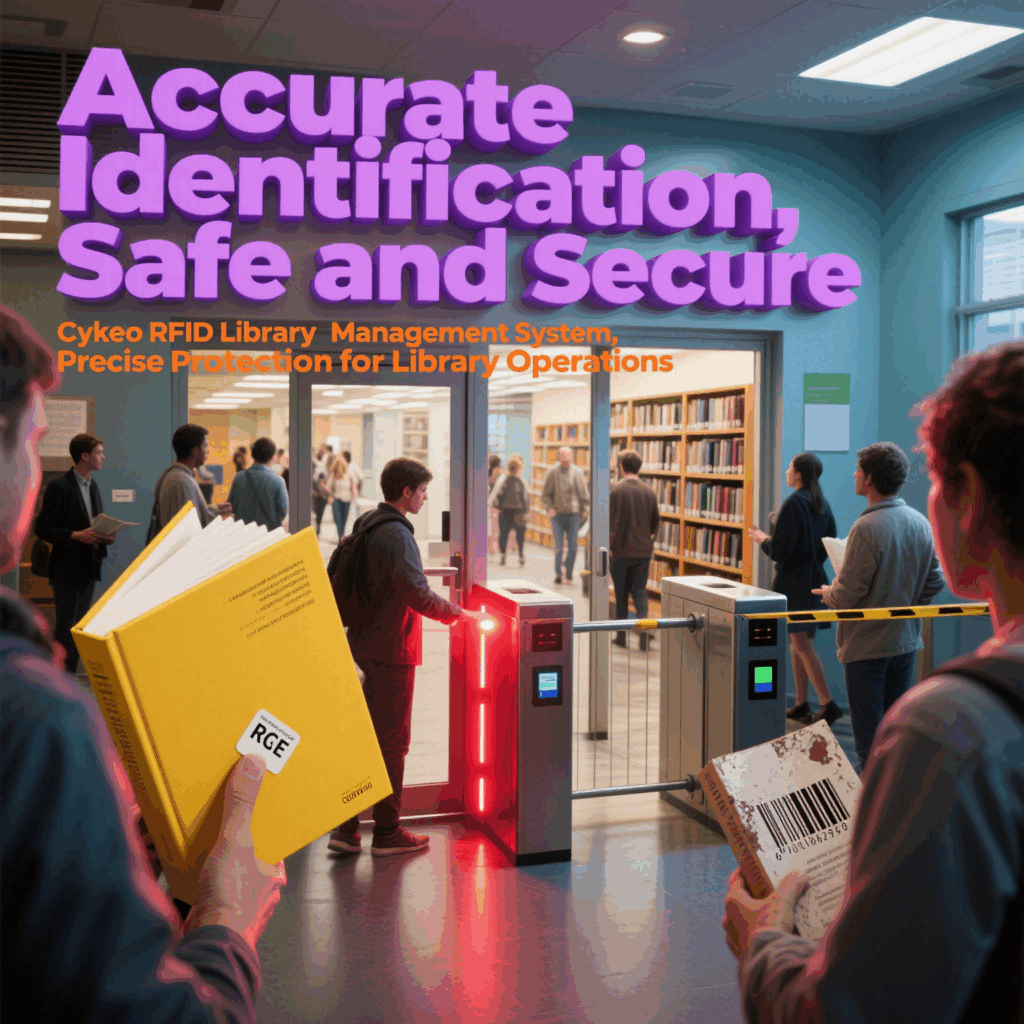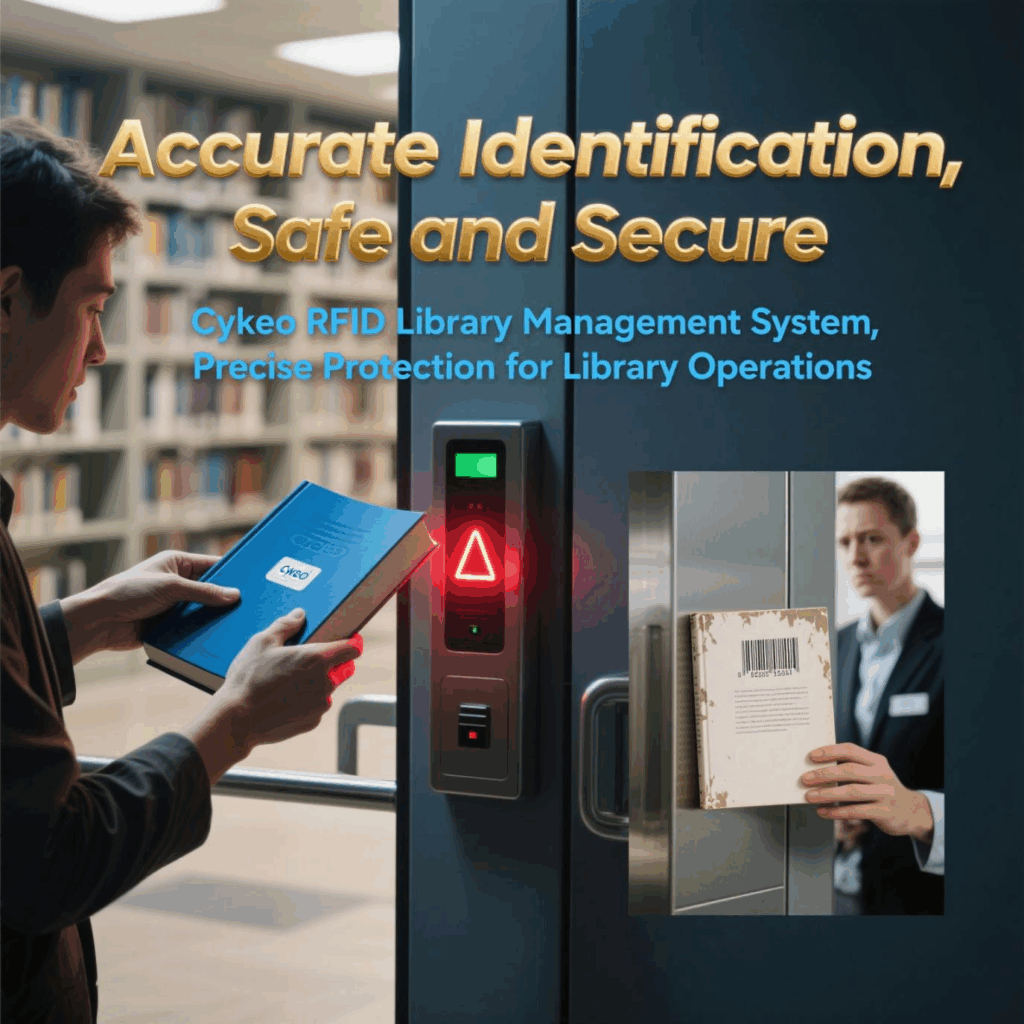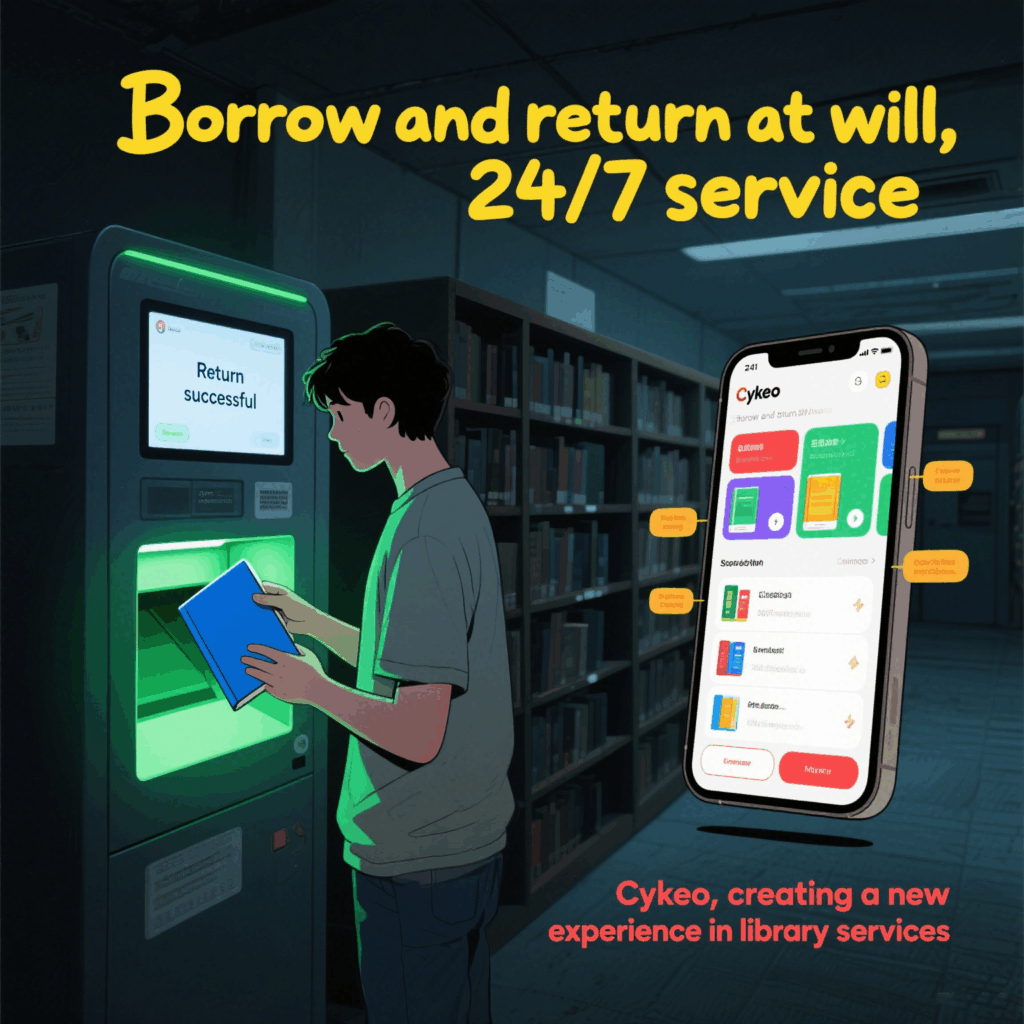Para qué sirve RFID antenna coil: La espiral que te abre puertas (literalmente)
39Descubre para qué sirve RFID antenna coil en etiquetas y lectores. Te explicamos cómo transfiere energía y datos en sistemas de acceso y pagos sin contacto.
MoreAll RFID Product
In the era of global digitalization, libraries are facing both challenges and opportunities.How to efficiently manage vast collections and optimize the borrowing experience has become an urgent issue for many libraries. The emergence of RFID (Radio Frequency Identification) technology has brought breakthroughs to library management and is gradually becoming a standard in modern library systems.
Enhancing Management Efficiency
Traditional libraries rely on barcodes to manage books, requiring staff to manually scan each book for check-in, check-out, and inventory, which is time-consuming and labor-intensive. During peak hours, this often leads to long queues and congestion. The adoption of RFID technology allows library staff to process multiple books at once. For example, during inventory checks, staff can simply push a cart equipped with RFID reader to quickly scan and identify numerous books simultaneously, significantly improving efficiency.

Convenient Borrowing and Returning
For library patrons, RFID technology offers more convenient borrowing and returning experience. With the aid of self-service borrowing and returning machines, patrons no longer need to wait in line at the service desk. They can simply place RFID-tagged books in the sensing area to easily complete the borrowing or returning process, which takes only a few seconds. Even after library hours, patrons can utilize 24-hour self-service return boxes equipped with RFID technology to quickly return books. This time-unrestricted service greatly meets the needs of patrons.
Reducing Errors and False Alarms
Barcodes are prone to scanning failures due to dirt, wear, and other factors, which can affect the accuracy of book management. RFID tags use wireless radio frequency communication, allowing information to be read without direct contact, and they have higher resistance to interference and greater durability. Additionally, RFID systems can accurately identify book information, effectively reducing borrowing errors caused by manual mistakes or barcode misreads, as well as false alarms from security gates, thereby ensuring the accuracy and security of library management.
Enhancing User Experience
With the introduction of RFID technology, libraries can provide readers with more intelligent and personalized services. For example, through RFID-based location tracking, readers can quickly find the exact location of the desired book on the library’s electronic navigation system, eliminating the need to search blindly among the shelves. Additionally, libraries can use RFID technology to record readers’ borrowing history and preferences, enabling personalized book recommendations that enhance the reading experience and increase reader satisfaction with the library.

RFID system mainly consists of three components: RFID tags, readers/writers, and antennas. In library management, each book is attached with a tiny RFID tag that stores the book’s unique identification code, title, author, publisher, and other detailed information.
When a book enters the effective reading range of the reader, the antenna emits radio frequency signals at a specific frequency to activate the RFID tag. Once activated, the tag reflects the stored book information back to the antenna in the form of electromagnetic waves. The antenna then transmits the received signals to the reader, which decodes the signals to obtain the book’s information and sends it to the library management system database.
During borrowing and returning, self-service machines or service desk readers use this principle to read the RFID tag information, associating it with the borrower’s data to complete the transaction. At library entrances and exits, security gate systems detect whether books have been properly checked out; if an unchecked book passes through the gate, the system immediately triggers an alarm to prevent theft.
Cykeo focuses deeply on the application of RFID technology in library management and has launched an efficient RFID library management system solution, dedicated to creating a new intelligent management ecosystem for libraries.
Cykeo system adopts advanced RFID technology with strong batch processing capabilities. Whether it is book borrowing and returning, inventory checks, or shelving, all operations can be completed quickly and accurately. Using the Cykeo system for inventory, tasks that used to take weeks of manual work can now be finished in just a few days, significantly improving library management efficiency and freeing staff from tedious repetitive labor to focus more on reader services and resource development.

In terms of saving labor costs, the advantages of the Cykeo RFID library management system are especially prominent. Through highly automated borrowing and returning processes and intelligent management functions, libraries can optimize personnel allocation and reduce unnecessary labor input. At the same time, the system is simple and easy to operate, allowing new employees to quickly get up to speed after a short training period, further reducing labor training costs.
For readers, Cykeo solution brings unprecedented convenience. With variety of self-service borrowing and returning devices, whether inside or outside the library, readers can easily complete borrowing and returning operations. The system also supports online reservation and renewal functions, enabling readers to manage their borrowing information anytime and anywhere via mobile phones or computers.
Regarding error and false alarm reduction, the Cykeo RFID library management system effectively avoids various errors caused by tag recognition issues thanks to its precise identification technology and stable performance. Additionally, the system has intelligent early warning features to promptly detect and handle abnormal situations during library management, ensuring smooth and accurate library operations.
Through intelligent and user-friendly functional design, Cykeo’s solution comprehensively enhances the library user experience. From convenient borrowing processes to personalized service recommendations, from fast book location to creating a comfortable reading environment, Cykeo is committed to allowing every reader to enjoy an efficient, convenient, and pleasant reading experience in the library.
The application of RFID technology in library management has become an irreversible trend. The Cykeo RFID library management system solution, with its outstanding performance and comprehensive services, provides strong support for libraries to achieve intelligent management and improve overall competitiveness. Whether for large public libraries or university libraries, choosing the Cykeo library management system solution means experiencing more efficient, smarter, and more user-friendly library management.
Descubre para qué sirve RFID antenna coil en etiquetas y lectores. Te explicamos cómo transfiere energía y datos en sistemas de acceso y pagos sin contacto.
MoreRFID readers for boom barriers boost security and traffic efficiency in parking lots, factories, and gated communities. Learn real deployment cases, setup tricks, and key questions before installation.
MoreDiscover how a major retail chain reduced stockouts by 40% using RFID for real-time inventory tracking. Learn actionable strategies to apply in your stores.
MoreDiscover the top RFID readers for warehouse automation. Learn how Cykeo’s advanced systems boost accuracy, speed, and scalability in logistics and inventory management.
More